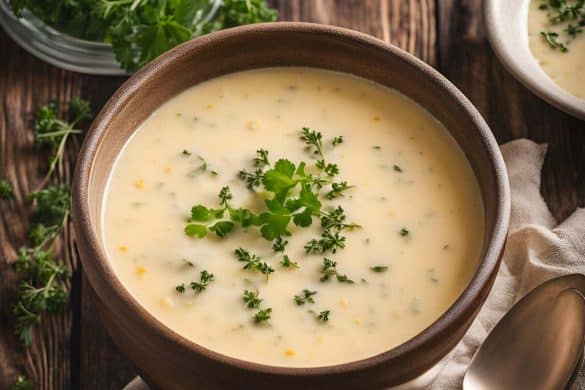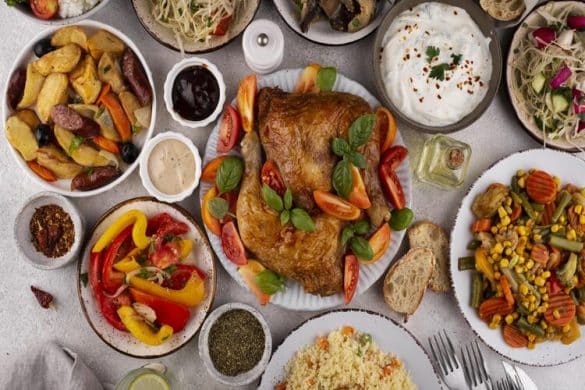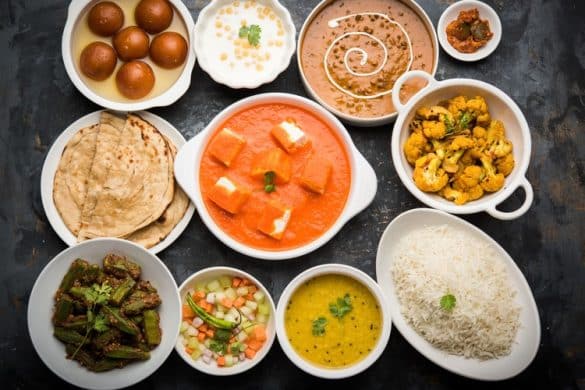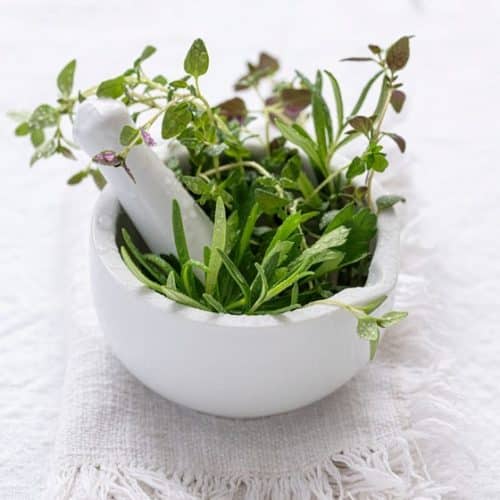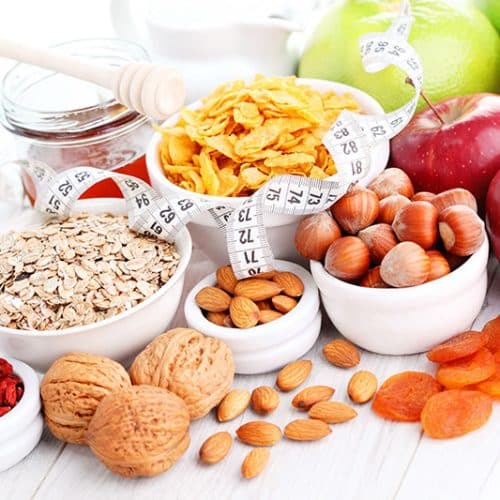It’s no secret that maintaining a healthy diet is vital for our physical well-being. But have you ever considered the impact of your relationship with food on your mental health? For many, food choices are often influenced by emotions rather than by physical needs. This emotional eating and bouts of uncontrolled eating can lead to unhealthy dietary habits and eating disorder symptoms. This furher contributes to body image issues and triggers feelings of guilt concerning worse quality diets. Therefore, nurturing a positive relationship with food becomes paramount to ensure a healthier body and mind.
Whether you have a history of dieting, frequently find yourself overeating, or wish to improve your relationship with food, this blog aims to provide five practical tips to guide you. From understanding the intricacies of your current relationship with food and doing weight control management for weight loss, developing healthier eating habits to overcoming food guilt and emotional eating – we will explore various aspects of the subject.
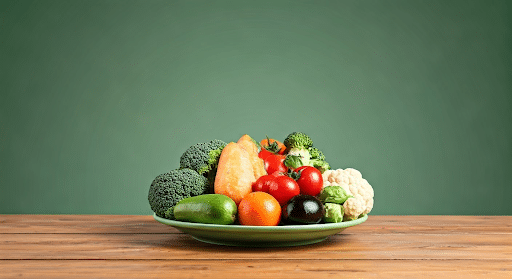
relationship with food
Understanding Your Relationship with Food
Before diving into how to develop a healthier relationship with food, let’s first identify the signs of an unhealthy food relationship. Does guilt constantly consume you after eating certain foods? Based on their nutritional profile, do you label foods as “good” or “bad”? Is your food intake dictated by calorie-counting apps rather than your body’s natural hunger cues?
Recognising such behaviours can provide you with personal insights into the emotional factors affecting your eating habits, such as those recorded in a food mood diary, and increase awareness of emotions related to these factors. This understanding is the first step on the path towards nurturing a healthier relationship with food, where stress related to eating is significantly reduced, and food freedom is embraced.
How To Develop a Healthy Food Relationship?: Top
Meaning of a healthy relationship with food involves:
- Respect for your body’s hunger cues.
- The elimination of guilt associated with healthy eating of certain foods.
In essence, it’s not about following restrictive diets or fearing specific food groups but about embracing a balanced approach towards healthy eating and avoiding harmful food rituals that dictate which foods or combinations to eat at specific times. The following section will walk you through a few tips to develop healthy food relationships.
1. Give yourself unconditional permission to eat
One significant step towards developing a healthy food relationship is granting yourself unconditional eating permission. Often, we impose stringent rules around our eating habits, forbidding certain foods and feeling guilty for indulging in our favourite treats. This can lead to deprivation, resulting in uncontrollable cravings and binge eating.
In contrast, allowing yourself to eat when you feel like it, without guilt or shame, is essential to a healthy relationship with food. Whether you’ve eaten more than usual at lunch or had an extra cookie for dessert, remember that you still have a right to eat when you’re hungry or simply because you want to. Your self-worth is not dictated by the food you eat; you are entitled to nourishment irrespective of any previous food choices.
2. Eat when you’re hungry
It may seem obvious, but many of us have lost touch with our natural hunger cues due to years of diet culture, irregular meal times, lower intakes of vegetables, and feelings of shame associated with eating. Listening to your body and responding to its hunger signals is vital to promoting a positive relationship with food.
Born with an innate ability to regulate hunger, babies and young children naturally eat when hungry and stop when satiated. Unfortunately, societal conditioning, emotional triggers, and other factors can disrupt this instinct over time. By becoming more in tune with your body’s hunger and fullness signals, you can better manage your food intake, fostering a healthier relationship with food.
3. Practice mindful eating
Practising mindful eating is an effective strategy for healing a troubled relationship with food. Being mindful means being fully present during meals, savouring your food with healthy food recipes, and acknowledging the flavours, textures, and feelings associated with the eating process. It promotes conscious decision-making about what and how much to eat.
Implementing mindfulness in your eating habits encompasses several aspects:
- Cherishing your mealtime: Eat without distractions like TV or mobile devices and appreciate the experience of eating.
- Paying attention to your food: Note your food’s taste, texture, and aroma.
- Listening to your body: Respond to your body’s hunger and fullness cues rather than controlled portion sizes or calorie counts.
- Understanding your emotions: Recognising emotional triggers for eating and differentiating between emotional hunger and physical hunger.
Remember, mindful eating is not a diet but a practice that cultivates a healthier, more balanced relationship with food.
4. Welcome all foods in your diet
Fueling a healthy relationship with food also means removing restrictions and welcoming all types of food into your diet. Labelling foods as “bad” or “unhealthy” often leads to cravings, guilt, and a cycle of restricting and overeating.
In contrast, embracing variety and moderation allows you to control your intake while still enjoying the foods you love. Judgment-free eating encourages more positive interactions with food, leading to more substantial body confidence and a healthier perspective on diet and nutrition.
It’s important to remember that all foods fit into a balanced diet. You can create a more harmonious, stress-free relationship with food by letting go of food guilt and “off-limits” restrictions.
5. Mind your plate
Besides what you eat, how you eat also significantly influences your food relationship. “Minding your plate” involves conscious decisions about what goes on, choosing healthier portion sizes, and eating pace.
Consider the following recommendations when minding your plate:
| Tips for Mindful Plate | Details |
| Vary portion sizes | Choose smaller plates to manage portions without feeling deprived. |
| Include diverse food groups | Ensure a mix of protein, carbohydrates, and healthy fats in each meal. |
| Savour each bite | Eat slowly, cherishing each mouthful to increase satisfaction and recognise fullness. |
Remember, dining is not just about satiating hunger but enjoying the entire eating process. At times, when you run out of food ideas, visit Awesome Cuisine and avail yourself of a treasure trove of recipe ideas that await you.
How to Overcome Food Guilt and Emotional Eating?
A significant barrier to achieving a positive food relationship is the cycle of food guilt and emotional eating, often stemming from a perceived lack of willpower. However, one can break away from the shackles of food guilt by employing specific techniques. Let’s learn more about it in the following section.
1. Techniques to manage emotional eating
Emotional eating is a common obstacle many people face when trying to improve their relationship with food, often resorting to food for comfort during stressful or emotional times. Fortunately, with the proper techniques, you can combat emotional eating and develop healthier coping mechanisms:
- Identify triggers: Recognise the feelings and events that lead to emotional eating and find alternative ways to deal with them.
- Create a distraction list: Develop a list of activities such as taking a walk, reading, or listening to music that you can engage in instead of turning to food.
- Practice mindfulness: Be present in the moment and acknowledge your feelings and emotions without judgement.
- Seek professional help: Therapists and nutritionists specialising in emotional eating can provide guidance and tools to manage emotional eating effectively.
2. Replacing negative thoughts with positive ones
A crucial step in overcoming mindless eating and improving your relationship with food is to replace negative thoughts about eating and body image with positive affirmations. Every time a negative thought arises that results in a low mood, consciously replace it with a kinder, more forgiving sentiment. When you find yourself criticising your body, remember that your appearance or weight doesn’t define your worth. You are so much more than what you see in the mirror.
Furthermore, lack of joy, being dissatisfied with yourself and putting restrictions on yourself can also negatively impact you. Instead of chastising yourself for indulging in dessert, remember that enjoying foods you love in moderation is perfectly okay. But do not fall for food addiction or take unnecessary use of diet pills.
3. Seeking support from friends and family
Journeying towards a healthier relationship with food need not be a solitary endeavour. Involving your loved ones can provide supportive reinforcement whenever you stumble or feel lost. Discuss your goals with trusted friends and family members and let them know how they can best support you.
It can also be helpful to connect with others who are on a similar journey, such as online support groups or local community groups. And remember, it’s okay to seek professional help if required. A registered dietitian, nutritionist, or therapist specialising in disordered eating can provide valuable guidance and tools to help navigate your journey towards a healthier relationship with food.
Conclusion
Developing a healthy relationship with food is about cultivating a mindset of self-care and compassion. It’s about honouring your body’s needs, allowing yourself to enjoy food, and discarding the guilt and stress often accompanying eating. We create a balanced, nurturing relationship with food by practising mindful eating, embracing all foods, and addressing emotional eating.
However, it’s essential to recognise that this journey is a long way journey since it demands time and patience. There may be setbacks, but with consistency and forgiveness, you can forge a positive connection with eating that extends beyond physical nourishment. Food is a source of joy, a medium for creating memories, and a significant aspect of our cultural and social experiences.
Frequently Asked Questions
What does a ‘good relationship with food’ mean?
A good relationship with food doesn’t revolve around guilt, restriction, or negative emotions. Instead, it involves mindful eating, understanding your body’s hunger and satiety cues, incorporating food variety, and deriving pleasure from eating without fear or guilt, all of which influence healthier food choices.
Why is a positive relationship with food meaningful?
A positive relationship with food bolsters both your physical and mental health. It imparts essential nutrient needs, prevents disordered eating, reduces mental stress, and provides room for enjoying food. Such a positive relationship nurtures healthy habits that contribute to a balanced and fulfilling lifestyle.
How can I overcome emotional eating?
Overcoming emotional eating involves recognising emotional triggers, practising mindful eating, setting up distractions, and seeking professional help if needed. Moving from emotional to conscious eating supports healthy food relationships and ensures that you eat for nourishment and enjoyment, not as a coping mechanism.
How do I start practising mindful eating?
The practice of mindful eating begins by paying attention. Focus on the food’s taste, texture, and aroma, eat without distractions, rely on bodily hunger and satiety body cues, and enjoy your meals without rushing. Mindful eating cultivates an enriching, guilt-free approach towards dietary habits.
Are there any other ways to improve your relationship with food?
Yes, there are many other ways to improve your relationship with food. While you look out for healthy dietary patterns, practise healthy living as well. For example, instead of only thinking about food, look at areas of your life that can give you pleasure, like spending some time on social media for leisure. Additionally, always opt for higher intakes of vegetables that aid in lower perceived stress, learn why specific vitamins for the body are important, focus on better diet quality, and implement a greater liking of healthy foods.

